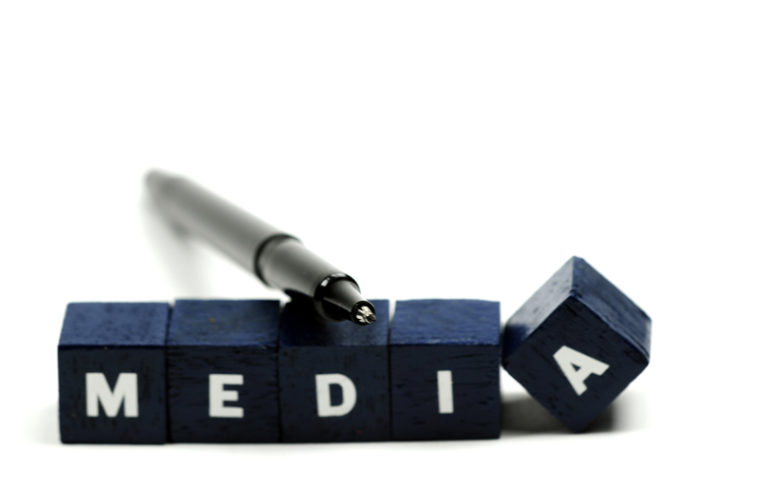 Two stories today stand out as indicative of the continuing war Trump is waging on the media. The first, reported widely, is that he signed an executive order late Thursday to end public funding of PBS and National Public Radio. The measure is being taken to, as the order says, stop “biased and partisan news coverage.” According to a statement released by the White House on Friday, both organizations receive “tens of millions of dollars in taxpayer funds each year to spread radical, woke propaganda disguised as news.” The White House then furnished a long list of programming they described as “trash that passes as news.”
Two stories today stand out as indicative of the continuing war Trump is waging on the media. The first, reported widely, is that he signed an executive order late Thursday to end public funding of PBS and National Public Radio. The measure is being taken to, as the order says, stop “biased and partisan news coverage.” According to a statement released by the White House on Friday, both organizations receive “tens of millions of dollars in taxpayer funds each year to spread radical, woke propaganda disguised as news.” The White House then furnished a long list of programming they described as “trash that passes as news.”
Patricia Harrison, president and CEO of the CPB, pushed back in a statement saying that
CPB is not a federal executive agency subject to presidential authority. Congress directly authorized and funded CPB to be a private nonprofit corporation wholly independent of the federal government.
This seems headed for the courts, but this is obviously another example of Trump trying to assert authority he does not have over information and commentary that displeases him.
Just another day in our nation’s capital.
Exhibit 2 in today’s clippings is a piece by the Washington Post Editorial Board with the title “Journalists should never be compelled to reveal confidential sources.” The editorial criticizes Attorney General Pam Bondi for new guidelines that “allow investigators to go after members of the media who obtain ‘privileged and other sensitive information,’ not just classified material, ‘that undermine President Trump’s policies’.”
It’s interesting that this editorial appears in the Washington Post considering the confidential sources their own journalists Woodward and Bernstein used to help bring down President Nixon. If these guidelines were in place then, it might have been the journalists who were marched off to jail with Nixon going unpunished, which, I suppose, is the point.
The current Post editorial concludes with the statement that “regardless of the government’s posture, keeping sources’ identities confidential will always be a top priority – under Trump, and every president who follows him.”
Again, Bondi’s directive is intended to make it more difficult for journalists to do their job, and more difficult for all of us to access the truth.
These are the kinds of stories almost easy for us to ignore because they are part of a relentless effort by Trump to control the narrative, particularly by declaring anything he doesn’t like “fake news.” You will recall he recently belllowed about the slew of polls that show his popularity sinking, demanding an investigation and talking about election interference. He has been suing major and minor media outlets for all sorts of putative transgressions charging “media distortion” and “intentional falsification of the news.” He has tried to control which media has access to the White House.
It is tiresome, but the real question is “could it be effective?” Does Trump himself think it could be or is this simply another example of a petty man throwing around the weight of the federal government just because he can? Is he just trying to make the lives of those he deems enemies a little bit more tedious?
It could also be that his instincts, certainly consistent with his background in business, is to create a litigious environment in which even the big players are cowed into moderating their critical impulses. Consider the voluntary exodus of some of the best journalists at the Washington Post who don’t like the new editorial regime there, the departure of executive producer Bill Owens at 60 minutes due to the “extra levels of corporate supervision corporate leaders are imposing,” and on-air staffing changes at CNN and MSNBC never adequately explained.
But this is not 1974, a time when there were relatively few sources of news. Good, bad, superfluous, and annoying information is everywhere. Trump probably won’t be able to control the narrative very effectively in what we have been calling for some time the informational age. It is unfortunate that so many mainstream media outlets are signaling they can be pushed around, but the overall impact of that is probably limited.
Significantly, President Nixon and his allies did “challenge the licenses of TV stations who ran afoul” of the president. Perhaps he was unsuccessful because it was hard to do or maybe he just ran out of time. In any case, in a less crowded media market than we have today, that’s a frightening thought.
If I had to choose, I think Trump is at war with the media because he’s a bully and likes to do bully stuff, but I’m going to side with those who believe good information will get out there for those who want it because there is simply so much of it.
I think Trump is pissing in the wind on this one. I hope I’m right.
ID 9768923 | Word ©
Mark Huls | Dreamstime.com
Retired political staffer/civil servant. Dual U.S./Canadian citizen writing about politics and the arts on both sides of the border.
















